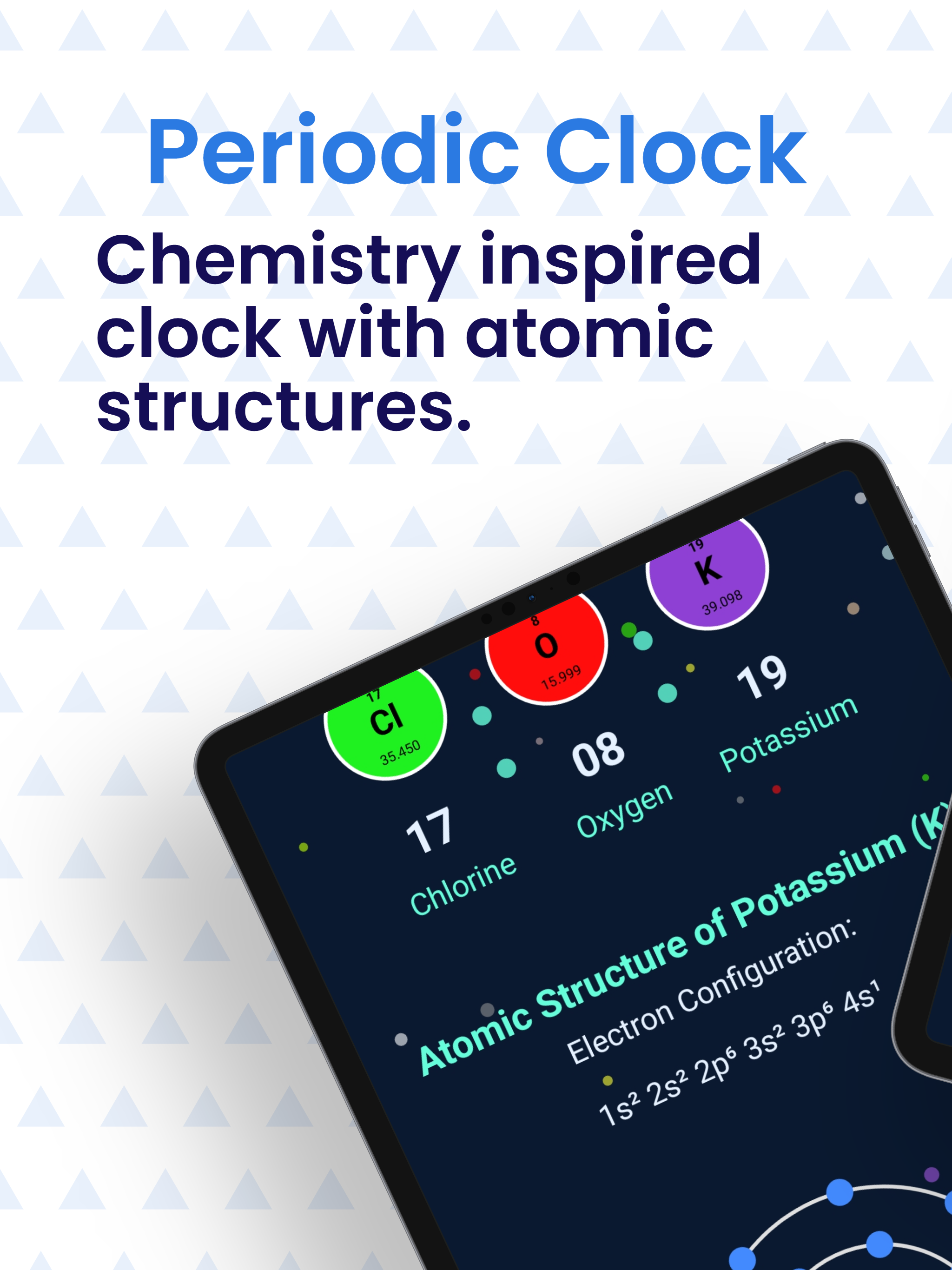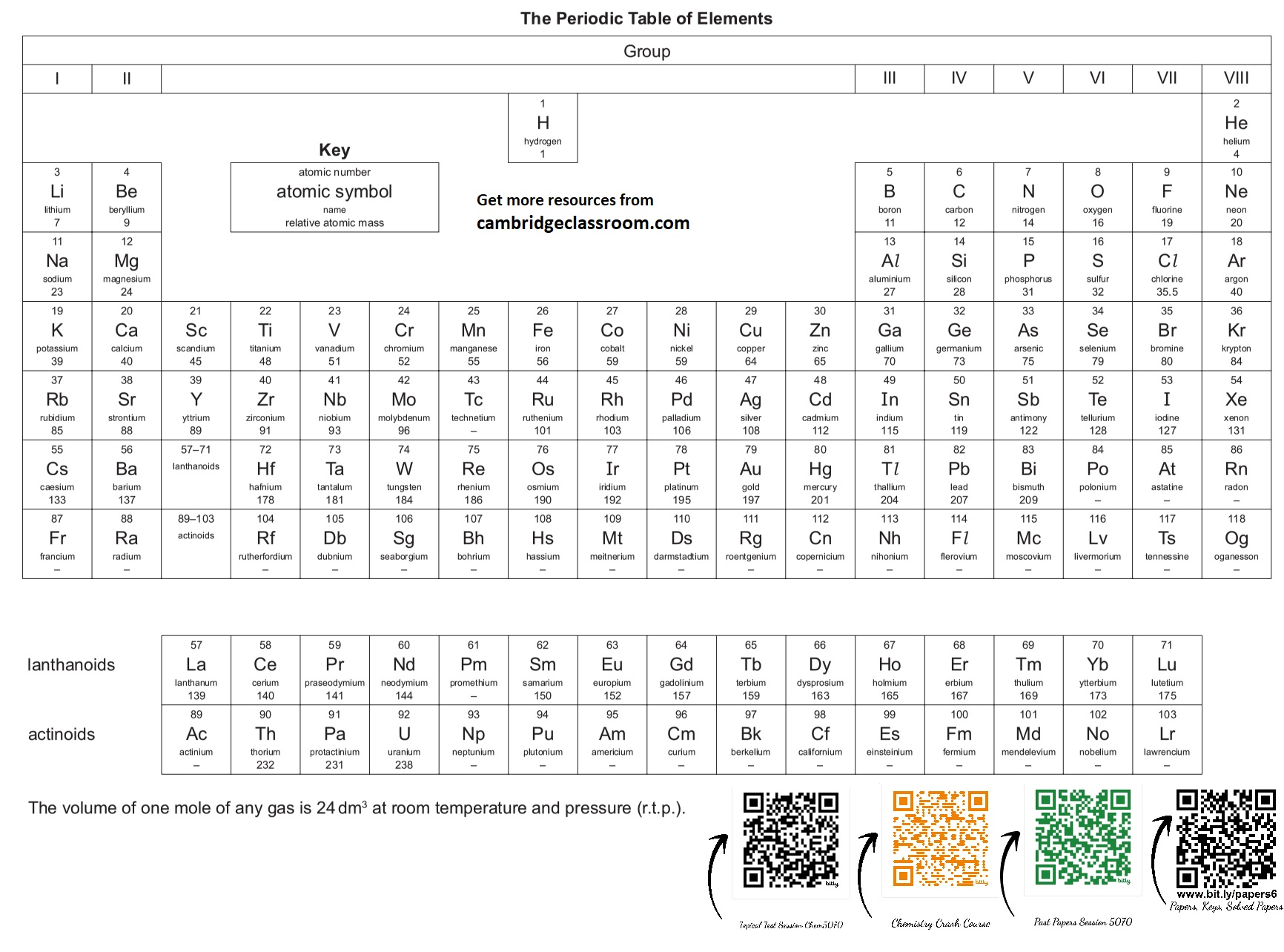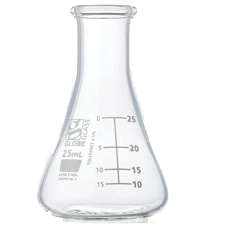FREE A* Grade Chemistry Notes Download: IGCSE, O-LEVEL, AQA, Edexcel (2026 Syllabus onwards)
 YOUR CHEMISTRY MASTERY STARTS HERE: Ultra-Premium, Free Lecture Notes for Sure Top Grades in Exams
YOUR CHEMISTRY MASTERY STARTS HERE: Ultra-Premium, Free Lecture Notes for Sure Top Grades in Exams
| Chemistry Topics (The A* Essentials) | Core Concepts | Exam Board Coverage | Instant Download |
|---|---|---|---|
| **Moles** | Stoichiometry, **Limiting Reactant**, Percentage Yield, Molar Mass, **Concentration Calculation** | CAIE 0620/5070 AQA Edexcel | Download PDF Free |
| **Chemical Bonding** | Ionic, Covalent, Metallic, **Giant Structures**, Dot-and-Cross Diagrams | CAIE 0620/5070 AQA Edexcel | Download PDF Free |
| **Organic Chemistry (Part 1)** | Alkanes, Alkenes, **Isomers**, Homologous Series, Unsaturated vs. Saturated | CAIE 0620/5070 AQA Edexcel | Download PDF Free |
| **Organic Chem (Part 2)** | Alcohols, Carboxylic Acids, Esters, **Polymerization**, Fermentation | CAIE 0620/5070 AQA Edexcel | Download PDF Free |
| **Electrolysis** | **Selective Discharge**, Anode/Cathode, **Half-Equations**, Electroplating | CAIE 0620/5070 AQA Edexcel | Download PDF Free |
| **Redox** | **Oxidation/Reduction**, **OIL RIG**, Oxidizing Agent, Half-Equations | CAIE 0620/5070 AQA Edexcel | Download PDF Free |
| **Chemical Energetics** | Exothermic, Endothermic, **Activation Energy**, $\Delta\text{H}$, Energy Profile Diagrams | CAIE 0620/5070 AQA Edexcel | Download PDF Free |
| **Acids, Bases and Salts** | $\text{pH}$ Scale, Neutralization, **Salt Preparation (Titration)**, Alkali vs. Base | CAIE 0620/5070 AQA Edexcel | Download PDF Free |
| **The Periodic Table** | **Group Trends** (1, 7, 0), Reactivity Trends, Periodicity | CAIE 0620/5070 AQA Edexcel | Download PDF Free |
| **Atoms, Elements and Compounds** | **Isotopes**, Protons, Neutrons, Electrons, Relative Atomic Mass ($\text{A}_r$) | CAIE 0620/5070 AQA Edexcel | Download PDF Free |
| **States of Matter (Part 1)** | **Kinetic Particle Theory**, Diffusion, Brownian Motion, Changes of State | CAIE 0620/5070 AQA Edexcel | Download PDF Free |
| **States of Matter (Part 2)** | Advanced Particle Behaviour, Gas Properties, Intermolecular Forces | CAIE 0620/5070 AQA Edexcel | Download PDF Free |
| **Metals (Part 1)** | **Reactivity Series**, Extraction by Carbon/Electrolysis, Displacement Reactions | CAIE 0620/5070 AQA Edexcel | Download PDF Free |
| **Metals (Part 2)** | **Rusting** (Conditions and Prevention), **Sacrificial Protection**, Iron Extraction | CAIE 0620/5070 AQA Edexcel | Download PDF Free |
| **Experimental Techniques** | Filtration, Distillation (Simple/Fractional), **Chromatography**, Purity Tests | CAIE 0620/5070 AQA Edexcel | Download PDF Free |
| **Formula** | **Valency Rules**, Naming Compounds, Writing Chemical Formulae | CAIE 0620/5070 AQA Edexcel | Download PDF Free |
| **Formulae** | **Empirical Formula** Calculation, Molecular Formula Derivation, $\text{M}_r$ | CAIE 0620/5070 AQA Edexcel | Download PDF Free |
| **Reactions** | **Rates of Reaction**, **Collision Theory**, Factors Affecting Rate (T, C, SA, Catalyst) | CAIE 0620/5070 AQA Edexcel | Download PDF Free |
| **Oxygen and Air** | Atmospheric Composition, **Air Pollution** ($\text{SO}_2, \text{NO}_x$), **Acid Rain** Formation | CAIE 0620/5070 AQA Edexcel | Download PDF Free |
| **Hydrogen and Water** | Water Treatment (Chlorination), Properties of Hydrogen, Fuel Use, Reduction | CAIE 0620/5070 AQA Edexcel | Download PDF Free |
 WELCOME TO CAMBRIDGE CLASSROOM: UNLOCK YOUR CHEMISTRY POTENTIAL
WELCOME TO CAMBRIDGE CLASSROOM: UNLOCK YOUR CHEMISTRY POTENTIAL
O Level Chemistry Notes PDF (All Chapters) – The 2025 Master Guide
Are you drowning in heavy textbooks and confused by complex chemical equations? You have just found the ultimate resource: the complete O Level Chemistry Notes PDF (All Chapters) to fast-track your revision.
Whether you are preparing for the Cambridge O Level (5070) or IGCSE (0620) exams in the USA, UK, Singapore, UAE, or Pakistan, having the right notes is the difference between a “pass” and a “distinction.”
In this guide, we provide a chapter-by-chapter breakdown, free downloadable resources, and expert strategies to help you master the syllabus in record time.
Why You Need These Notes (The Problem with Textbooks)
Let’s be honest: standard chemistry textbooks are too thick. They contain 30% fluff that won’t appear in your exam.
To score an A* in 2025, you need notes that are:
Condensed: Focusing only on the syllabus requirements.
Exam-Focused: Highlighting keywords examiners look for.
Visual: Using diagrams for organic mechanisms and electrolysis.
Pro Tip: Do not just read notes; engage with them. Use them alongside our Chemistry 5070 Syllabus Mastery Guide to ensure you aren’t missing any hidden topics.
Section 1: Physical Chemistry (The Foundation)
Physical Chemistry is the math and logic of the subject. If you master this, the rest is easy.
1. Stoichiometry & The Mole Concept
This is the #1 “Grade Killer.” If you cannot calculate moles, you cannot answer quantitative questions in Paper 2 or Paper 4.
Key Concepts: Relative atomic mass ($A_r$), Molar gas volume ($24 dm^3$), and Titration calculations.
The Secret Weapon: Use the “Formula Triangles” to stop making algebra mistakes.
👉 Download Now: Stoichiometry Secrets: Moles Made Simple
Learn the shortcut methods that schools don’t teach you.
2. Electrolysis & Electrochemistry
You must understand the movement of ions. Remember PANIC: Positive Anode, Negative Is Cathode.
Don’t Struggle: Get our specific guide on Electrochemistry & Electrolysis.
Section 2: Inorganic Chemistry (Patterns & Trends)
Inorganic chemistry is about recognizing patterns in the Periodic Table.
1. The Periodic Table
You need to know the trends down Group I (Alkali Metals) and Group VII (Halogens).
Group I: Reactivity increases down the group.
Group VII: Reactivity decreases down the group.
Read More: Master the CIE Periodic Table of Chemistry
2. Metals & Extraction
From the Blast Furnace to the Reactivity Series, this chapter is pure memorization.
Section 3: Organic Chemistry (The “Big Beast”)
Organic Chemistry makes up nearly 25% of the exam. It looks scary, but it is actually the most systematic part of the syllabus.
The Functional Groups You Must Know:
Alkanes: Saturated hydrocarbons (Substitution reactions).
Alkenes: Unsaturated (Addition reactions).
Alcohols: Produced by fermentation or hydration.
Carboxylic Acids: Weak acids formed by oxidation.
Polymers: Synthetic (Plastics) vs. Natural (Proteins).
🚀 Fast-Track Your Revision:
Stop trying to memorize every reaction individually. Use our Flowcharts to see the connections.
👉 Download: Organic Chemistry: Alkanes to Polymers (Full Bundle)
Section 4: Experimental Chemistry (Paper 4)
You cannot ignore the “Alternative to Practical” paper. It tests your ability to plan experiments and analyze data.
Top Requirements:
Test for Ions: Cations (NaOH/Ammonia), Anions, and Gases.
Apparatus: Knowing when to use a pipette vs. a burette.
Purification: Filtration, Crystallization, and Distillation.
👉 Essential PDF: Experimental Techniques & Chemical Analysis
How to Download the Best O Level Chemistry Notes
At Cambridge Classroom, we have curated the highest-quality resources used by top-ranking students globally.
The “Ultra-Premium” Collection
Why settle for average? Our Ultra-Premium notes are handwritten by top examiners and formatted for instant retention.
✅ Complete Syllabus Coverage (Chapters 1-12)
✅ Worked Examples for Math Questions
✅ Examiner Tips in Red Margins
📥 Download: Ultra Premium Study Notes (Guaranteed First Position)
Smart Study Strategy for 2025
Having the notes is only step one. Here is how to use them to secure an A*.
1. The “Review-Recall” Method
Read a chapter from our notes (e.g., Acids & Bases). Then, close the file and try to draw a mind map of everything you remember. Open the notes again to fill in the gaps.
2. Solve Topical Past Papers
Don’t do full years yet. Do questions specific to the chapter you just studied.
3. Watch a Crash Course
If reading isn’t enough, visual learning is 60,000x faster. Our crash courses cover the entire syllabus in hours, not months.
Join Now: Crash Course for Chemistry 5070/0620
University Admissions & Equivalence
For students in Pakistan, your O Level grades directly impact your IBCC equivalence score, which determines your entry into Medical or Engineering colleges.
Don’t Guess: Use our IBCC Equivalence Calculator to see where you stand.
Frequently Asked Questions (People Also Ask)
Q1: Are these notes suitable for IGCSE (0620) as well as O Level (5070)?
A: Yes! The core concepts (Moles, Organic, Bonding) are 95% identical. Our notes highlight the slight differences, making them perfect for both boards.
Q2: Can I get these notes for free?
A: We offer many free resources on our blog. However, our Ultra Premium Notes are a small investment for a guaranteed grade improvement.
Q3: How do I calculate Moles without a calculator?
A: You can’t! A calculator is essential. However, understanding the Concept is what matters. Check out our Simple Method for Mole Calculations.
Conclusion: Your A is One Click Away*
Chemistry is not about being a “genius.” It is about having the right tools. With our O Level Chemistry Notes PDF (All Chapters), you have the syllabus in the palm of your hand.
Stop wasting time on thick textbooks. Download the notes, watch the crash courses, and walk into that exam hall with confidence.
👉 Get Your Complete Chemistry Notes Bundle Now and master O Level Chemistry Notes PDF (All Chapters) today.
O Level Chemistry Notes PDF (All Chapters) | 2025 Exam Success Guide
Download the best O Level Chemistry Notes PDF (All Chapters). Covers Moles, Organic, & Inorganic Chem. Examiner-verified for 5070 & IGCSE 0620. Get A* now!
o-level-chemistry-notes-pdf-all-chapters-2025
The Ultimate O Level Chemistry Notes PDF (All Chapters) | Download Now
Struggling with Chemistry? Download our Ultra-Premium O Level & IGCSE Notes. Complete syllabus coverage, exam tips, and cheat sheets included.









![Fundamental Concepts & States of Matter • Atom: The smallest particle of an element that can exist, made of a nucleus (protons and neutrons) and electrons orbiting it. • Element: A pure substance consisting of only one type of atom, which cannot be broken down into simpler substances by chemical means. • Compound: A substance formed when two or more different elements are chemically bonded together in a fixed ratio. • Mixture: A substance containing two or more elements or compounds not chemically bonded together. Can be separated by physical means. • Molecule: A group of two or more atoms held together by chemical bonds. • Proton: A subatomic particle found in the nucleus with a relative mass of 1 and a charge of +1. • Neutron: A subatomic particle found in the nucleus with a relative mass of 1 and no charge (0). • Electron: A subatomic particle orbiting the nucleus with a negligible relative mass and a charge of -1. • Atomic Number (Z): The number of protons in the nucleus of an atom. Defines the element. • Mass Number (A): The total number of protons and neutrons in the nucleus of an atom. • Isotopes: Atoms of the same element (same atomic number) but with different mass numbers due to a different number of neutrons. • Relative Atomic Mass ($A_r$): The weighted average mass of an atom of an element compared to $1/12$th the mass of a carbon-12 atom. • Relative Molecular Mass ($M_r$): The sum of the relative atomic masses of all atoms in one molecule of a compound. • Relative Formula Mass ($M_r$): The sum of the relative atomic masses of all atoms in the formula unit of an ionic compound. • Mole: The amount of substance that contains $6.02 \times 10^{23}$ particles (Avogadro's number). • Molar Mass: The mass of one mole of a substance, expressed in g/mol. Numerically equal to $A_r$ or $M_r$. • Empirical Formula: The simplest whole number ratio of atoms of each element in a compound. • Molecular Formula: The actual number of atoms of each element in a molecule. • Solid: Particles are closely packed in a fixed, regular arrangement, vibrate about fixed positions. Definite shape and volume. • Liquid: Particles are closely packed but randomly arranged, can slide past each other. Definite volume, no definite shape. • Gas: Particles are far apart and arranged randomly, move rapidly and randomly. No definite shape or volume. • Melting Point: The specific temperature at which a solid changes into a liquid at a given pressure. • Boiling Point: The specific temperature at which a liquid changes into a gas (vaporizes) at a given pressure. • Sublimation: The direct change of state from solid to gas without passing through the liquid phase (e.g., solid $\text{CO}_2$). • Diffusion: The net movement of particles from a region of higher concentration to a region of lower concentration, due to random motion. • Osmosis: The net movement of water molecules across a partially permeable membrane from a region of higher water potential to a region of lower water potential. 2. Structure & Bonding • Ionic Bond: The electrostatic force of attraction between oppositely charged ions, formed by the transfer of electrons from a metal to a non-metal. • Covalent Bond: A strong electrostatic force of attraction between a shared pair of electrons and the nuclei of the bonded atoms, typically between two non-metals. • Metallic Bond: The electrostatic force of attraction between positive metal ions and delocalised electrons. • Ion: An atom or group of atoms that has gained or lost electrons, resulting in a net electrical charge. • Cation: A positively charged ion (lost electrons). • Anion: A negatively charged ion (gained electrons). • Octet Rule: Atoms tend to gain, lose, or share electrons in order to achieve a full outer electron shell, typically with eight electrons. • Giant Ionic Lattice: A regular, repeating 3D arrangement of oppositely charged ions, held together by strong electrostatic forces. • Simple Molecular Structure: Molecules held together by strong covalent bonds, but with weak intermolecular forces between molecules. • Giant Covalent Structure (Macromolecular): A large structure where all atoms are held together by strong covalent bonds in a continuous network (e.g., diamond, silicon dioxide). • Allotropes: Different structural forms of the same element in the same physical state (e.g., diamond and graphite are allotropes of carbon). • Electronegativity: The power of an atom to attract the electron pair in a covalent bond to itself. • Polar Covalent Bond: A covalent bond in which electrons are shared unequally due to a difference in electronegativity between the bonded atoms. • Hydrogen Bond: A strong type of intermolecular force that occurs between molecules containing hydrogen bonded to a highly electronegative atom (N, O, F). • Van der Waals' forces: Weak intermolecular forces of attraction between all molecules, arising from temporary dipoles. 3. Stoichiometry & Chemical Calculations • Stoichiometry: The study of quantitative relationships between reactants and products in chemical reactions. • Limiting Reactant: The reactant that is completely consumed in a chemical reaction, determining the maximum amount of product that can be formed. • Excess Reactant: The reactant present in a greater amount than required to react with the limiting reactant. • Yield: The amount of product obtained from a chemical reaction. • Theoretical Yield: The maximum amount of product that can be formed from a given amount of reactants, calculated using stoichiometry. • Actual Yield: The amount of product actually obtained from a chemical reaction, usually less than the theoretical yield. • Percentage Yield: $($Actual Yield $/$ Theoretical Yield$) \times 100\%$. • Concentration: The amount of solute dissolved in a given volume of solvent or solution. Often expressed in mol/dm$^3$ (molarity) or g/dm$^3$. • Solute: The substance that dissolves in a solvent to form a solution. • Solvent: The substance in which a solute dissolves to form a solution. • Solution: A homogeneous mixture formed when a solute dissolves in a solvent. 4. Chemical Reactions & Energetics • Chemical Reaction: A process that involves rearrangement of the atomic structure of substances, resulting in the formation of new substances. • Reactants: The starting substances in a chemical reaction. • Products: The substances formed as a result of a chemical reaction. • Word Equation: An equation that uses the names of the reactants and products. • Symbol Equation: An equation that uses chemical symbols and formulae to represent reactants and products, and is balanced. • Balancing Equation: Ensuring the number of atoms of each element is the same on both sides of a chemical equation. • Redox Reaction: A reaction involving both reduction and oxidation. • Oxidation: Loss of electrons, gain of oxygen, or loss of hydrogen. Increase in oxidation state. • Reduction: Gain of electrons, loss of oxygen, or gain of hydrogen. Decrease in oxidation state. • Oxidising Agent: A substance that causes oxidation by accepting electrons (and is itself reduced). • Reducing Agent: A substance that causes reduction by donating electrons (and is itself oxidised). • Exothermic Reaction: A reaction that releases energy to the surroundings, usually as heat, causing the temperature of the surroundings to rise. $\Delta H$ is negative. • Endothermic Reaction: A reaction that absorbs energy from the surroundings, usually as heat, causing the temperature of the surroundings to fall. $\Delta H$ is positive. • Activation Energy ($E_a$): The minimum amount of energy required for reactants to collide effectively and initiate a chemical reaction. • Catalyst: A substance that increases the rate of a chemical reaction without being chemically changed itself, by providing an alternative reaction pathway with a lower activation energy. • Enthalpy Change ($\Delta H$): The heat energy change measured at constant pressure for a reaction. • Standard Enthalpy of Formation ($\Delta H_f^\circ$): The enthalpy change when one mole of a compound is formed from its constituent elements in their standard states under standard conditions. • Standard Enthalpy of Combustion ($\Delta H_c^\circ$): The enthalpy change when one mole of a substance is completely combusted in oxygen under standard conditions. • Hess's Law: The total enthalpy change for a reaction is independent of the route taken, provided the initial and final conditions are the same. 5. Rates of Reaction & Equilibrium • Rate of Reaction: The change in concentration of a reactant or product per unit time. • Collision Theory: For a reaction to occur, reactant particles must collide with sufficient energy (activation energy) and correct orientation. • Factors Affecting Rate: Concentration, pressure (for gases), surface area, temperature, and presence of a catalyst. • Reversible Reaction: A reaction where products can react to reform the original reactants, indicated by $\rightleftharpoons$. • Chemical Equilibrium: A state in a reversible reaction where the rate of the forward reaction is equal to the rate of the reverse reaction, and the concentrations of reactants and products remain constant. • Le Chatelier's Principle: If a change in conditions (temperature, pressure, concentration) is applied to a system at equilibrium, the system will shift in a direction that counteracts the change. 6. Acids, Bases & Salts • Acid: A substance that produces hydrogen ions ($H^+$) when dissolved in water (Arrhenius definition) or a proton donor (Brønsted-Lowry definition). • Base: A substance that produces hydroxide ions ($OH^-$) when dissolved in water (Arrhenius definition) or a proton acceptor (Brønsted-Lowry definition). • Alkali: A soluble base that dissolves in water to produce hydroxide ions ($OH^-$). • Salt: A compound formed when the hydrogen ion of an acid is replaced by a metal ion or an ammonium ion. • Neutralisation: The reaction between an acid and a base (or alkali) to form a salt and water. $H^+(aq) + OH^-(aq) \rightarrow H_2O(l)$. • pH: A measure of the acidity or alkalinity of a solution, defined as $-\log_{10}[H^+]$. Scale from 0 to 14. • Strong Acid: An acid that fully dissociates (ionizes) in water (e.g., HCl, $H_2SO_4$). • Weak Acid: An acid that partially dissociates (ionizes) in water (e.g., $CH_3COOH$). • Strong Base: A base that fully dissociates in water (e.g., NaOH, KOH). • Weak Base: A base that partially dissociates in water (e.g., $NH_3$). • Amphoteric: A substance that can act as both an acid and a base (e.g., aluminium oxide, water). • Titration: A quantitative chemical analysis method used to determine the unknown concentration of a reactant using a known concentration of another reactant. • Indicator: A substance that changes colour over a specific pH range, used to detect the endpoint of a titration. 7. Electrochemistry • Electrolysis: The decomposition of an ionic compound using electrical energy. Requires molten or aqueous electrolyte. • Electrolyte: An ionic compound (molten or dissolved in a solvent) that conducts electricity due to the movement of ions. • Electrodes: Conductors (usually metal or graphite) through which electricity enters and leaves the electrolyte. • Anode: The positive electrode, where oxidation occurs (anions are attracted). • Cathode: The negative electrode, where reduction occurs (cations are attracted). • Faraday's Laws of Electrolysis: Relate the amount of substance produced at an electrode to the quantity of electricity passed through the electrolyte. • Galvanic (Voltaic) Cell: An electrochemical cell that generates electrical energy from spontaneous redox reactions. • Standard Electrode Potential ($E^\circ$): The potential difference of a half-cell compared to a standard hydrogen electrode under standard conditions (1 M concentration, 1 atm pressure for gases, 298 K). • Electrochemical Series: A list of elements arranged in order of their standard electrode potentials, indicating their relative reactivity as oxidising or reducing agents. 8. The Periodic Table • Periodic Table: An arrangement of elements in order of increasing atomic number, showing periodic trends in properties. • Group: A vertical column in the periodic table, containing elements with the same number of valence electrons and similar chemical properties. • Period: A horizontal row in the periodic table, containing elements with the same number of electron shells. • Valence Electrons: Electrons in the outermost shell of an atom, involved in chemical bonding. • Alkali Metals (Group 1): Highly reactive metals, readily lose one electron to form $+1$ ions. React vigorously with water. • Alkaline Earth Metals (Group 2): Reactive metals, readily lose two electrons to form $+2$ ions. • Halogens (Group 17/7): Highly reactive non-metals, readily gain one electron to form $-1$ ions. Exist as diatomic molecules. • Noble Gases (Group 18/0): Unreactive elements with a full outer electron shell, existing as monatomic gases. • Transition Metals: Elements in the d-block of the periodic table, characterised by variable oxidation states, coloured compounds, and catalytic activity. • Metallic Character: Tendency of an element to lose electrons and form positive ions. Increases down a group, decreases across a period. • Non-metallic Character: Tendency of an element to gain electrons and form negative ions. Decreases down a group, increases across a period. • Ionisation Energy: The energy required to remove one electron from each atom in one mole of gaseous atoms to form one mole of gaseous $1+$ ions. • Electron Affinity: The energy change when one mole of electrons is added to one mole of gaseous atoms to form one mole of gaseous $1-$ ions. 9. Organic Chemistry • Organic Chemistry: The study of carbon compounds, excluding carbonates, carbides, and oxides of carbon. • Hydrocarbon: A compound containing only carbon and hydrogen atoms. • Saturated Hydrocarbon: A hydrocarbon containing only single carbon-carbon bonds (e.g., alkanes). • Unsaturated Hydrocarbon: A hydrocarbon containing one or more carbon-carbon double or triple bonds (e.g., alkenes, alkynes). • Homologous Series: A series of organic compounds with the same general formula, similar chemical properties, and showing a gradual change in physical properties. • Functional Group: A specific group of atoms within a molecule that is responsible for the characteristic chemical reactions of that molecule. • Alkane: Saturated hydrocarbons with the general formula $C_nH_{2n+2}$. Contain only single bonds. • Alkene: Unsaturated hydrocarbons with the general formula $C_nH_{2n}$. Contain at least one carbon-carbon double bond. • Alkyne: Unsaturated hydrocarbons with the general formula $C_nH_{2n-2}$. Contain at least one carbon-carbon triple bond. • Alcohol: Organic compounds containing the hydroxyl functional group ($-OH$). General formula $C_nH_{2n+1}OH$. • Carboxylic Acid: Organic compounds containing the carboxyl functional group ($-COOH$). • Ester: Organic compounds formed from the reaction of a carboxylic acid and an alcohol, containing the ester linkage ($-COO-$). • Isomers: Compounds with the same molecular formula but different structural formulae. • Structural Isomers: Isomers that differ in the arrangement of their atoms or bonds. • Addition Reaction: A reaction where an unsaturated molecule adds across a double or triple bond, forming a single product. • Substitution Reaction: A reaction where an atom or group of atoms in a molecule is replaced by another atom or group of atoms. • Polymerisation: The process of joining many small monomer molecules together to form a large polymer molecule. • Monomer: A small molecule that can be joined together to form a polymer. • Polymer: A large molecule (macromolecule) formed from many repeating monomer units. • Addition Polymerisation: Polymerisation where monomers add to one another in such a way that the polymer contains all the atoms of the monomer. Usually involves unsaturated monomers. • Condensation Polymerisation: Polymerisation where monomers join together with the elimination of a small molecule (e.g., water). • Cracking: The process of breaking down long-chain hydrocarbons into shorter, more useful hydrocarbons using heat and/or a catalyst. • Fermentation: The anaerobic respiration of yeast, converting glucose into ethanol and carbon dioxide. 10. Analytical Chemistry • Qualitative Analysis: The identification of the components of a sample. • Quantitative Analysis: The determination of the amount or concentration of a component in a sample. • Chromatography: A separation technique based on differential partitioning between a stationary phase and a mobile phase. • Retention Factor ($R_f$): In paper/thin-layer chromatography, the ratio of the distance travelled by the spot to the distance travelled by the solvent front. • Spectroscopy: The study of the interaction of electromagnetic radiation with matter. • Infrared (IR) Spectroscopy: Used to identify functional groups in organic molecules based on their absorption of IR radiation. • Mass Spectrometry: Used to determine the relative molecular mass of a compound and its fragmentation pattern to deduce structure. • Flame Test: A qualitative test for the presence of certain metal ions, which produce characteristic colours when heated in a flame.](https://cambridgeclassroom.com/wp-content/uploads/2024/03/White-And-Purple-Modern-Online-Graphic-Design-Courses-Instagram-Post-4.png)













